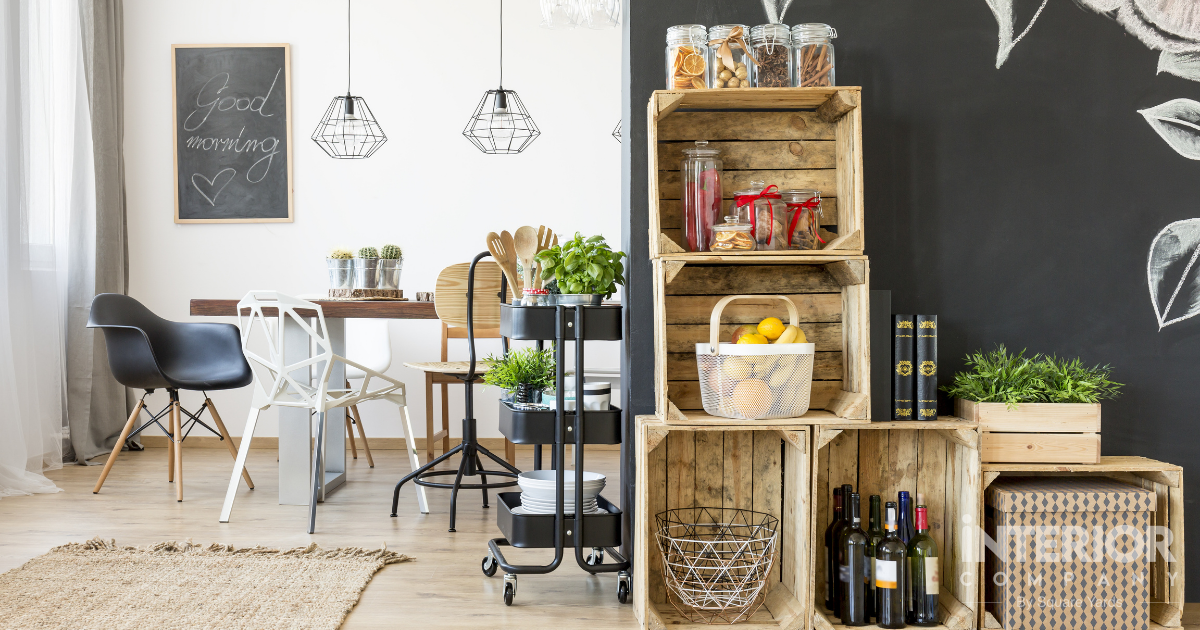- Kitchens
- Design Ideas
- Cities
- Trends
- Guides
- Price Calculators
- Our PortfolioNEW
- More
- Home
- Trends
- Furniture And Decor
- Indoor Plants
- Vastu Plants For Home
12 Vastu Plants for Your Home That Bring Luck and Create a Harmonious Environment
The ancient Indian discipline of Vastu Shastra, a science of architecture and harmony, plays an important role in the quest for a peaceful and prosperous life. Rooted in timeless Indian wisdom, it emphasises how the arrangement of elements within a living space can significantly impact our well-being and fortune. This principle, known as Vastu, has been practised for centuries, guiding the placement of everything from homes to furniture. Among the most influential elements in Vastu are vastu plants, which are aesthetically pleasing and believed to possess the power to attract positive energy and enhance our lives.
Table of Content
Vastu plants for home breathe life into any space, adding a touch of freshness, elegance, and natural beauty. But did you know they also influence the energy dynamics of your home? Vastu says certain plants, often called 'lucky plants', attract wealth and good fortune, bring peace, and improve health. Beyond their aesthetic appeal, plants are believed to act as conduits of positive energy, absorbing negative vibrations and infusing your home with vitality.
This blog will take you through the botanical world of Vastu, exploring the vastu plants that are believed to bring good fortune, ward off negativity, and create a harmonious ambience. From the towering money tree to the humble peace lily, we will delve into the science behind their energetic properties and discover how to incorporate vastu plants for a home for maximum benefit.
Types of Vastu-Approved Plants for a Positive Home Environment
While most of the plants receive a nod of approval from Vastu, here's a carefully curated list of the most popular indoor Vastu plants to help you easily incorporate them into your home for a positive living space:
Lucky Bamboo Plant
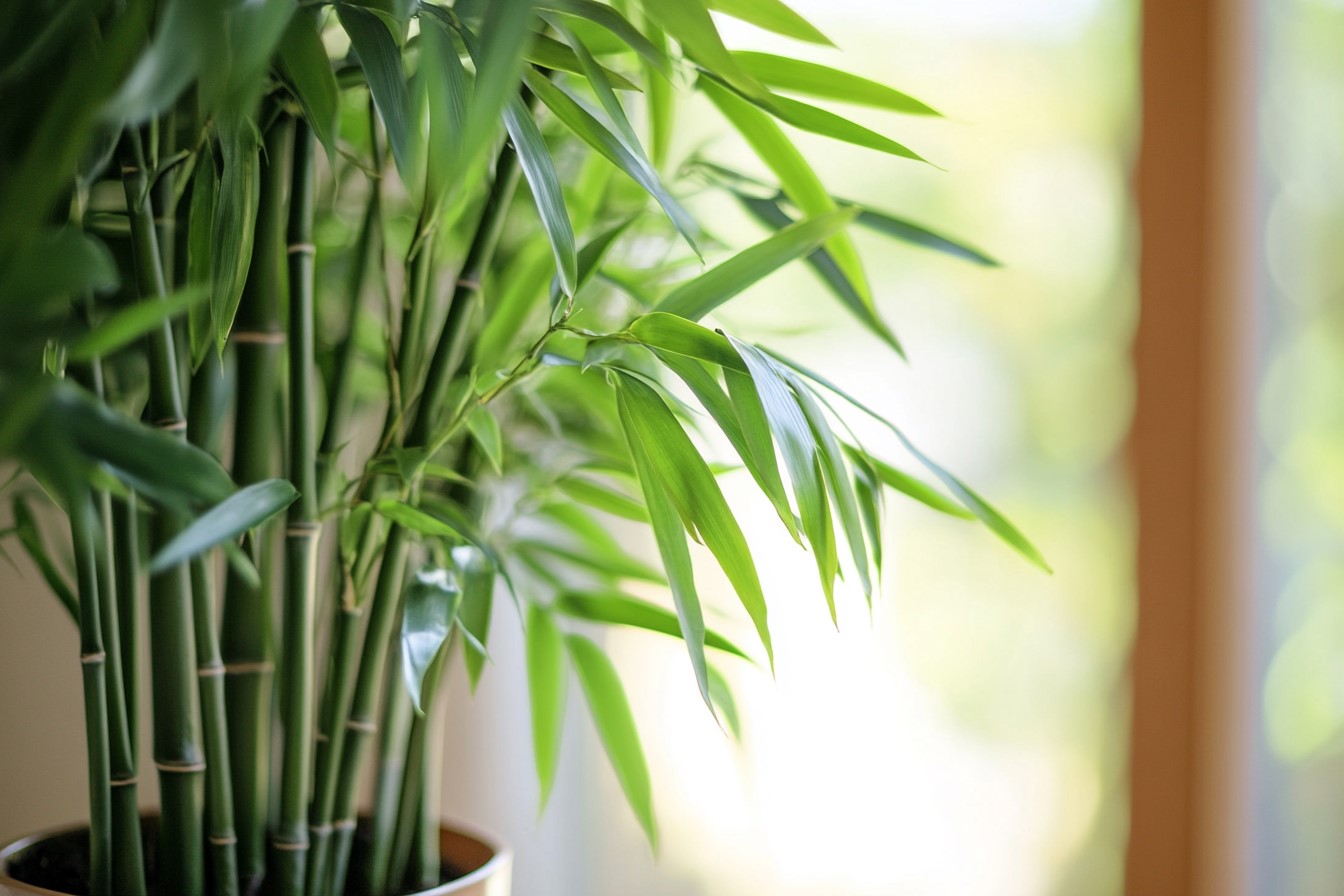
The lucky bamboo plant is renowned in Vastu for plants in the house to attract luck, love, wealth, and peace. The number of stalks signifies different qualities, like seven for health and six for luck. Often placed in study or work areas, it promotes calmness and balance. Tied with a red ribbon, symbolising fire and wood, bamboo brings harmony. For health benefits, place it in the east, and for prosperity, position it in the southeast, the direction of wealth.
Neem Plant
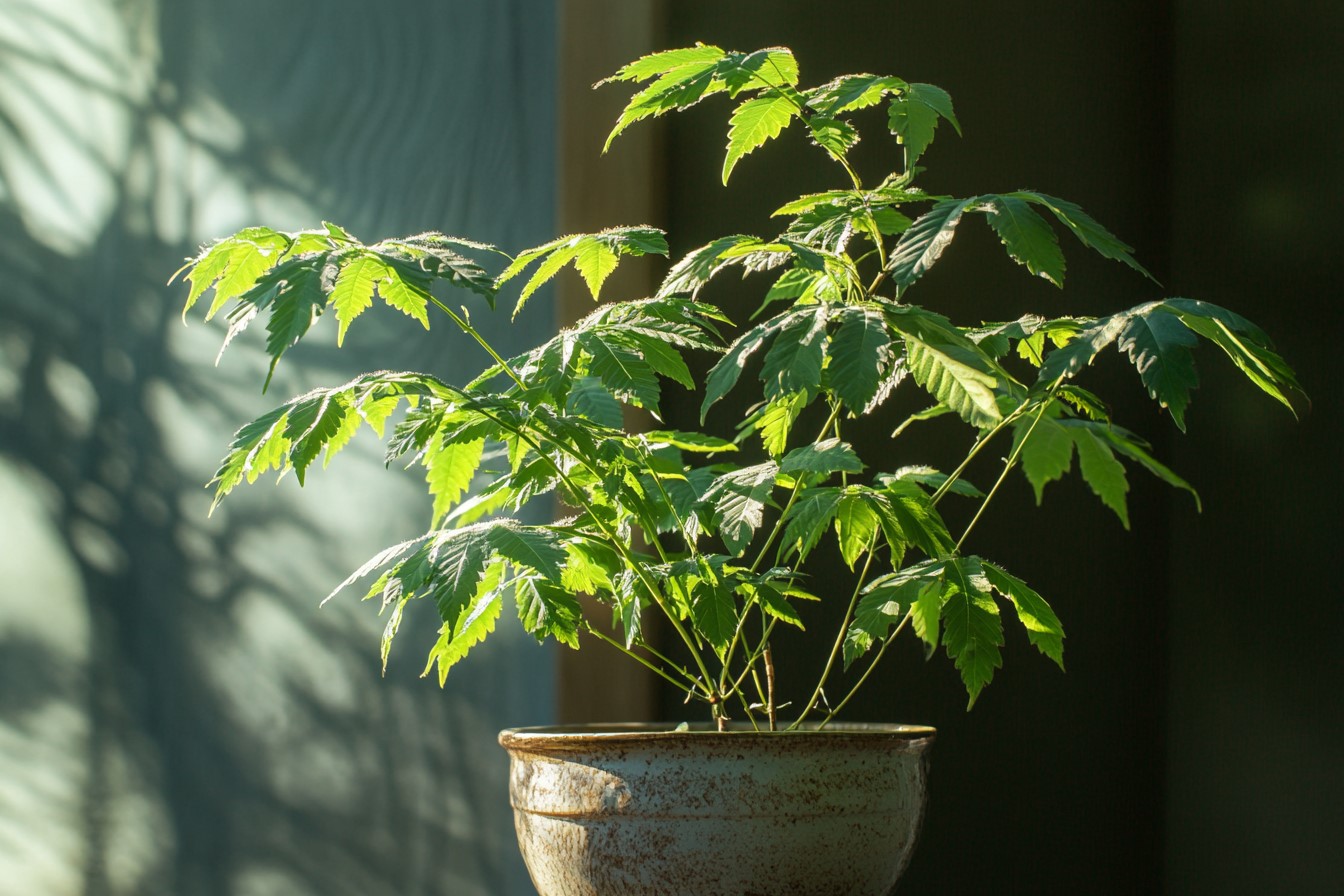
Commonly known as Indian Lilac, the neem plant is highly valued across India for its numerous medicinal properties. Neem leaves are widely used in herbal remedies to treat various illnesses, while neem oil is a natural insect repellent. This plant is particularly beneficial for the home, especially near the bedroom entrance. According to Vastu, indoor plants for home grow neem indoors purifies the air, contributing to the overall well-being and happiness of the household. Revered for its health-boosting qualities, the neem plant is considered one of the most powerful lucky plants for home. Placing it in the northern corner of your home is believed to enhance health and create a positive environment.
Money Plant
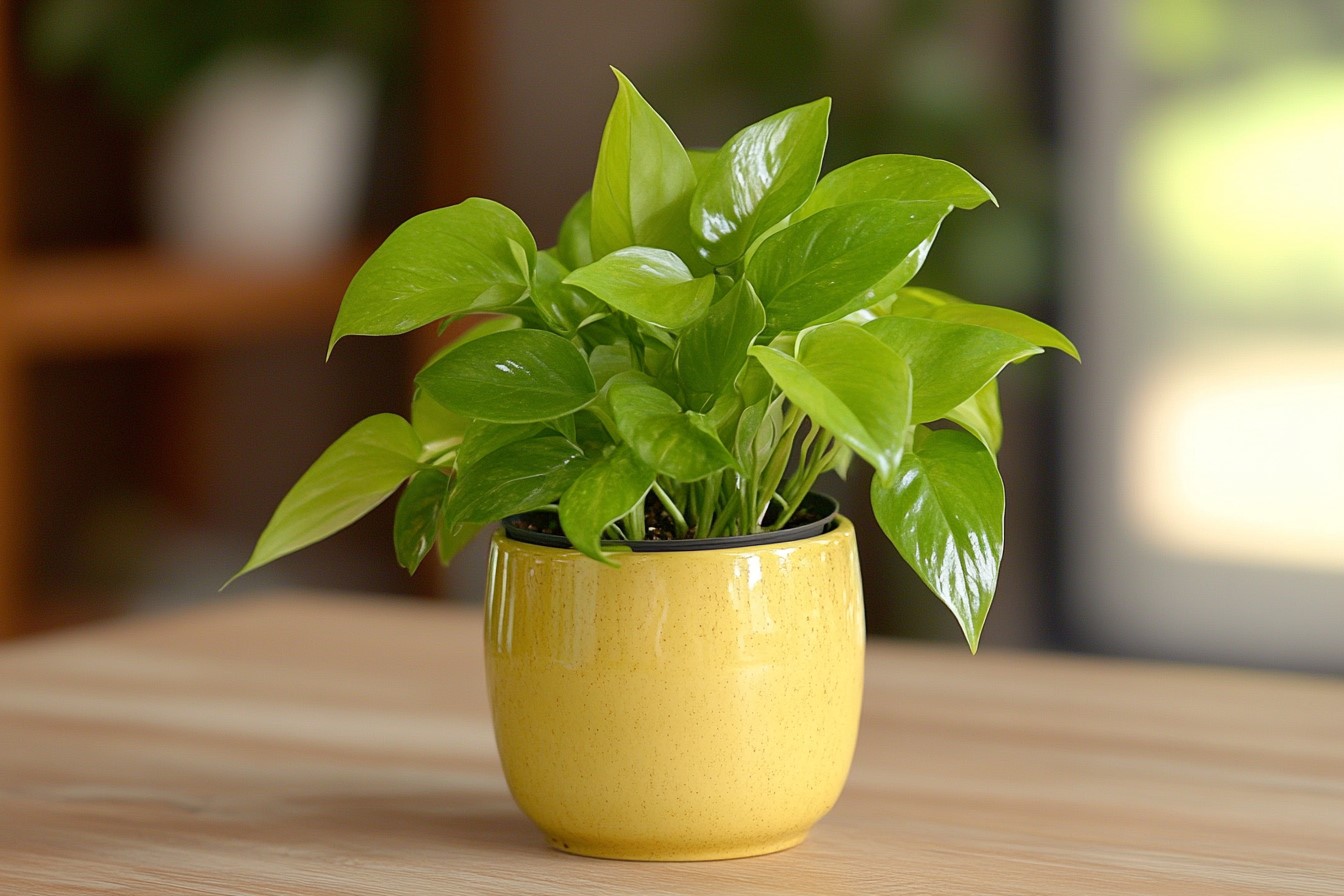
The money plant, also known as golden pothos, is a popular choice in Indian homes due to its low-maintenance nature. It thrives with minimal care and can grow in both soil and water, making it easy to propagate through stem cuttings. Beyond its practical benefits, plants for home, as per Vastu, associate this plant with wealth and prosperity. To attract fortune, it is recommended that the stems grow upward rather than dangle indoors. For financial stability, place the money plant in the southeast corner of your home, which is believed to be the direction of wealth.
Lavender Plant
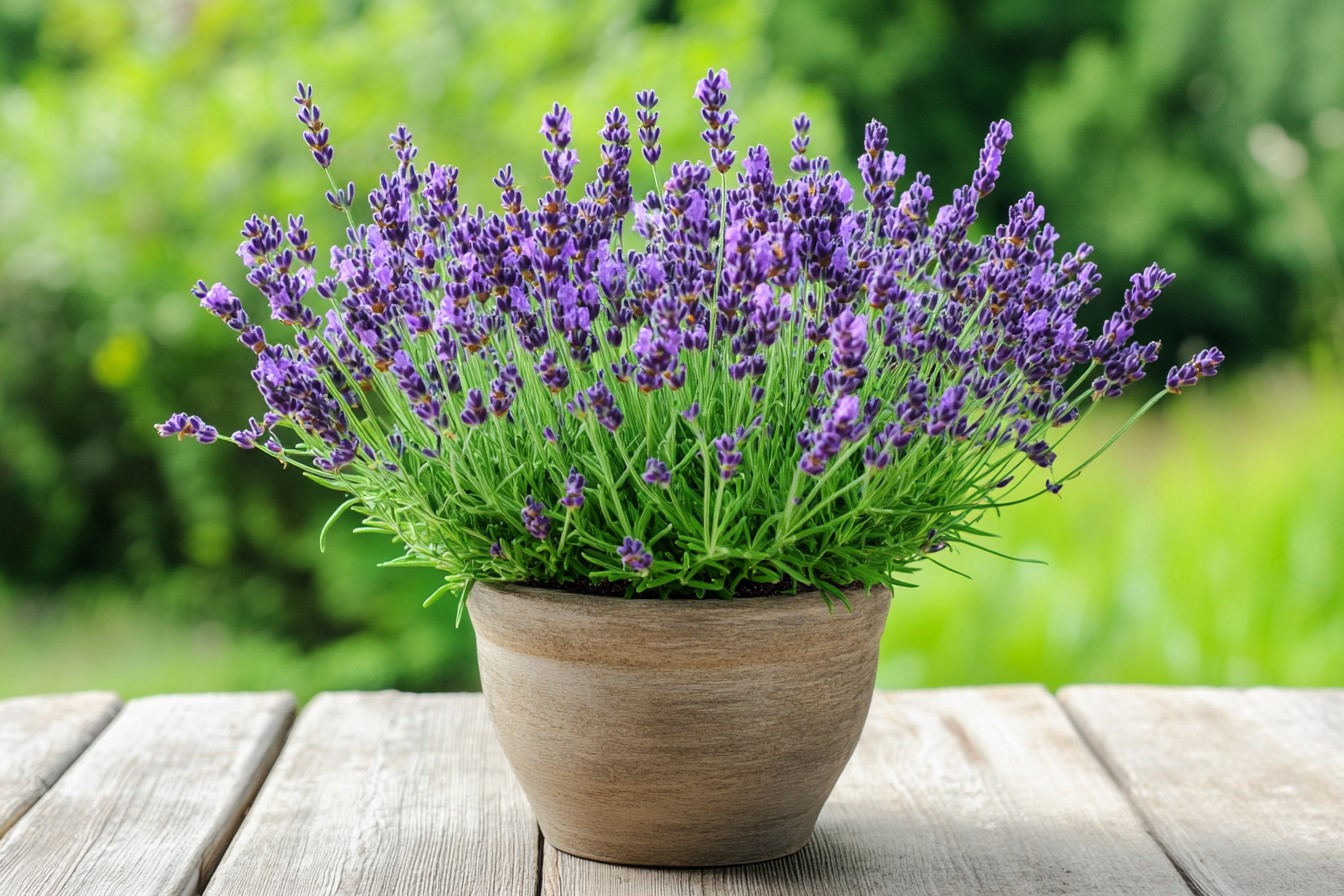
Lavender, a herb cherished since ancient times for its several benefits, is known for its lush green stems topped with delicate purple flowers. When placed in decorative ceramic pots, it adds a visual charm to any space. Its soothing fragrance is renowned for calming the nervous system, making it an ideal plant for bedroom windowsill, as recommended by Vastu plants for home, to foster harmony and strengthen relationships. Lavender is also associated with love and romance, while its healing properties offer additional wellness benefits. Also, lavender is believed to attract good luck, happiness, and health, making it a beautiful and beneficial addition to any home. Additionally, indoor plants, according to Vastu, are believed to improve the overall energy of the household, and lavender fits perfectly within these guidelines.
Peace Lily
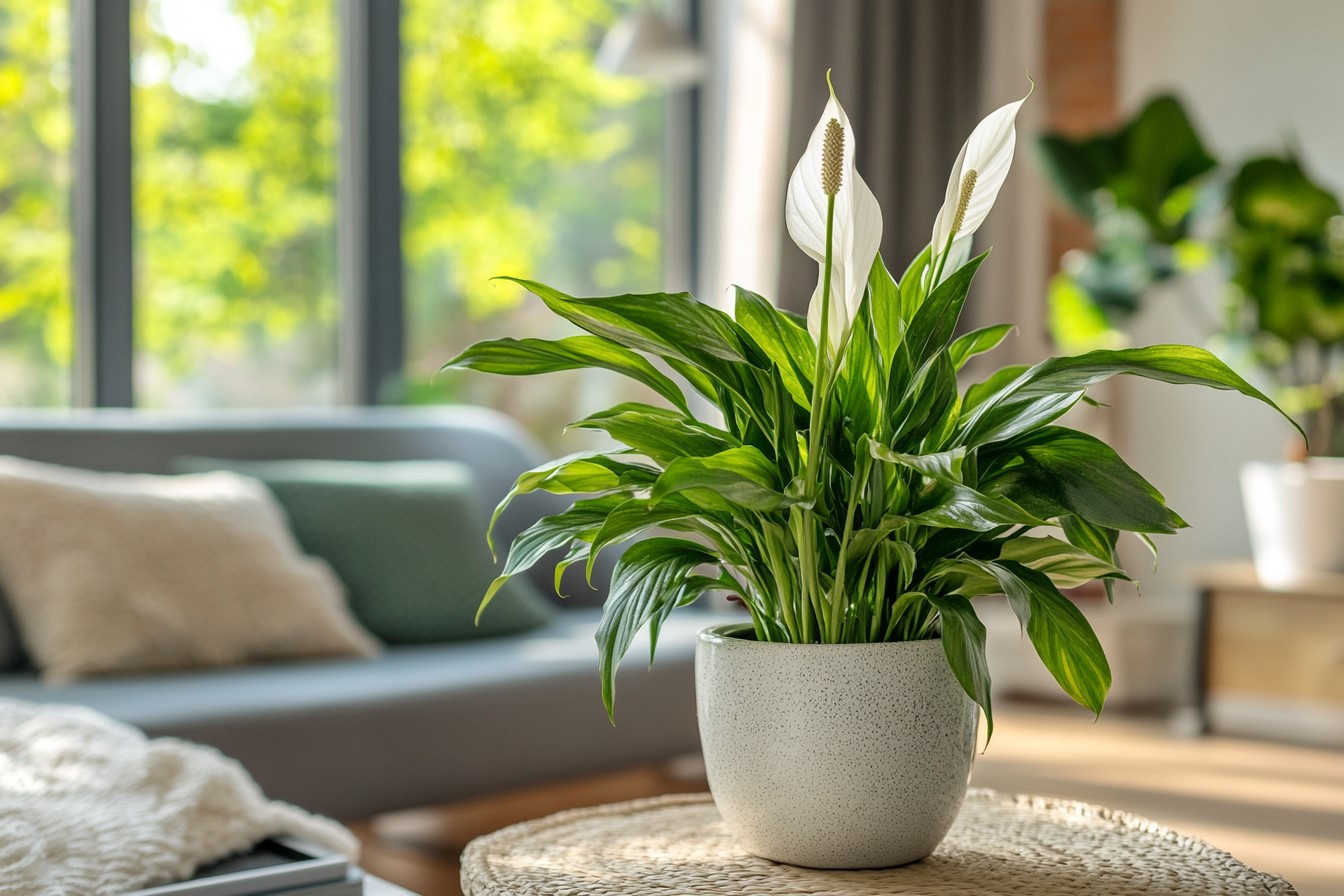
The peace lily lives up to its name by radiating calming energy in its environment. This plant adds beauty to any indoor space with its striking dark green leaves and elegant white flowers. It is also low-maintenance, making it an easy choice for indoor gardening. Considered one of the top Vastu plants for bedrooms, the peace lily is known for creating a soothing atmosphere. Whether in the bedroom or anywhere else, it brings a sense of calmness, promoting a peaceful and uplifting ambience.
Snake Plant
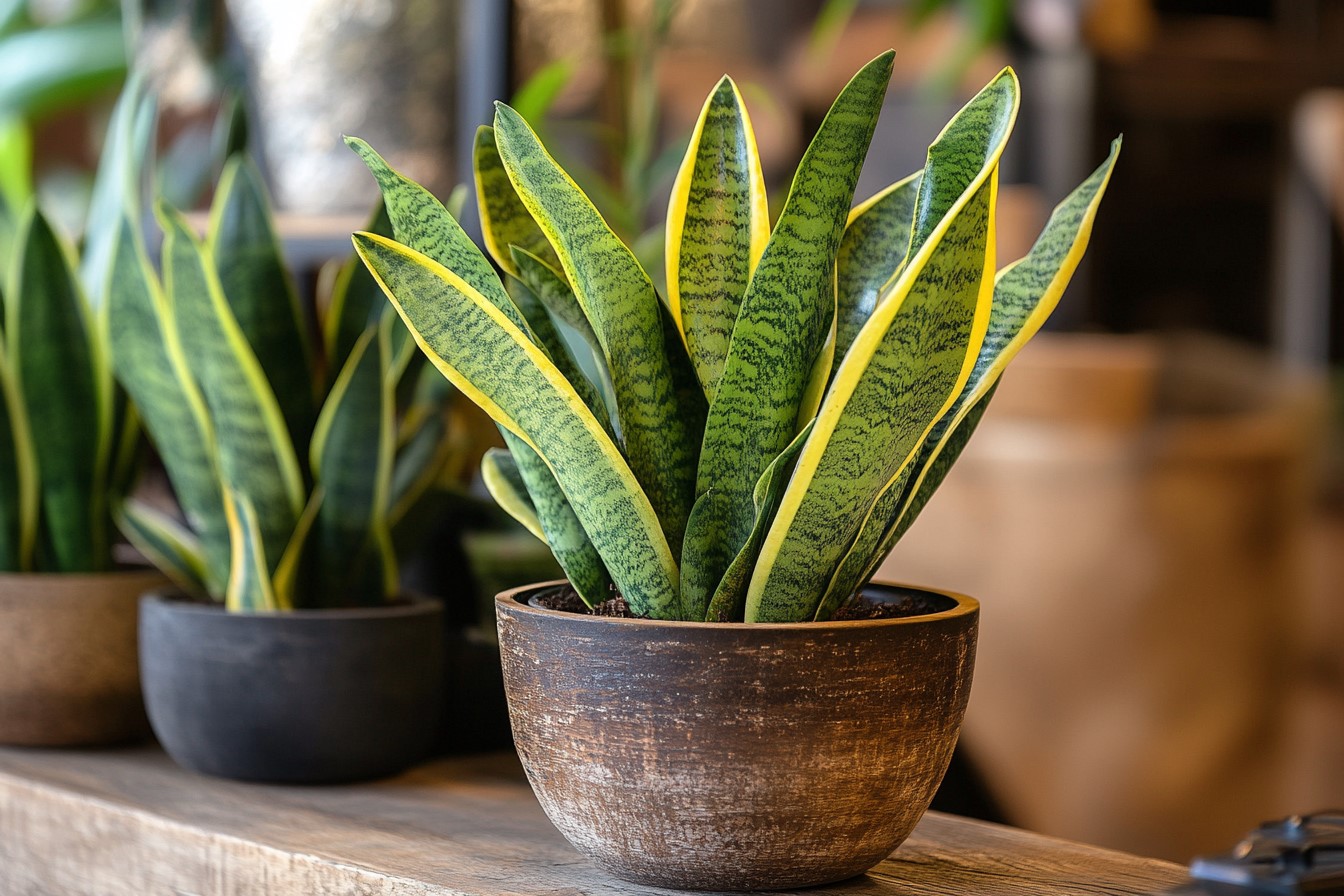
The snake plant is one of the most serene and visually appealing plants in the gardening world. Low maintenance and self-reliance make it a popular choice for Indian households. Known for its ability to absorb carbon dioxide and release oxygen, it improves air quality and can reduce stress and anxiety. According to Vastu, placing it in your bedroom’s south or east corners enhances these benefits. Its striking dark green, upright leaves make it a sophisticated addition to any indoor space and is often considered the best indoor plant per Vastu. If you are looking for plants for home, as per Vastu, the snake plant is an excellent option that brings both aesthetic and health benefits.
Holy Basil Plant
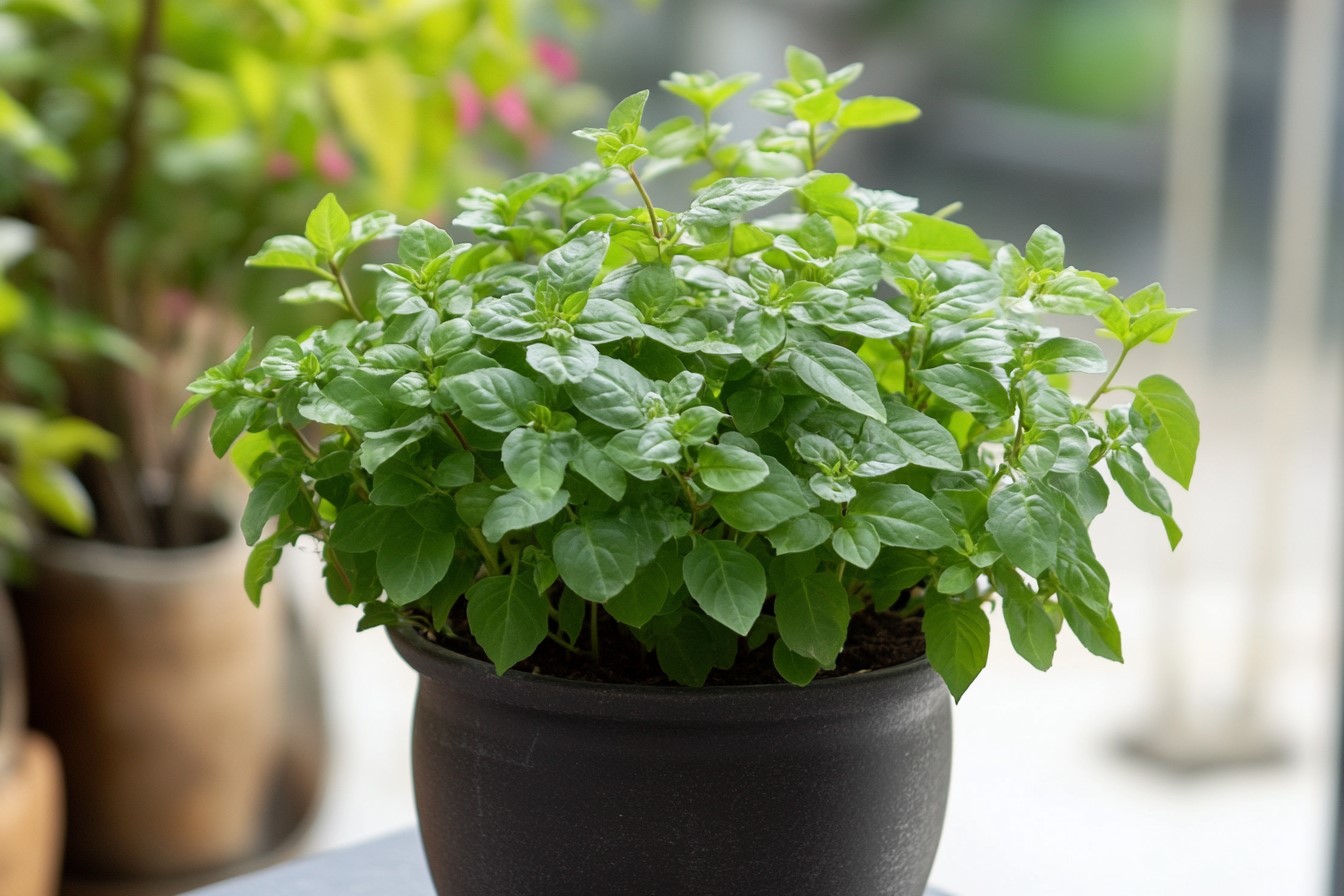
A plant with 'holy' in its name naturally holds a special place in Indian homes. Holy Basil, known as Tulsi in Hindi, is revered as one of the most sacred plants in Indian culture, closely associated with Goddess Tulsi. It is common to find a small Shivalinga near a Tulsi plant due to its spiritual significance. In Vastu Shastra, Tulsi is highly regarded as the best indoor plant as per Vastu for its ability to eliminate negative energy from the environment. Known for its medicinal benefits, many people light a diya near it for religious purposes. Vastu recommends placing the plant in the east or northeast direction to harness its full potential, making it one of the lucky plants for home Vastu.
Rubber Plant
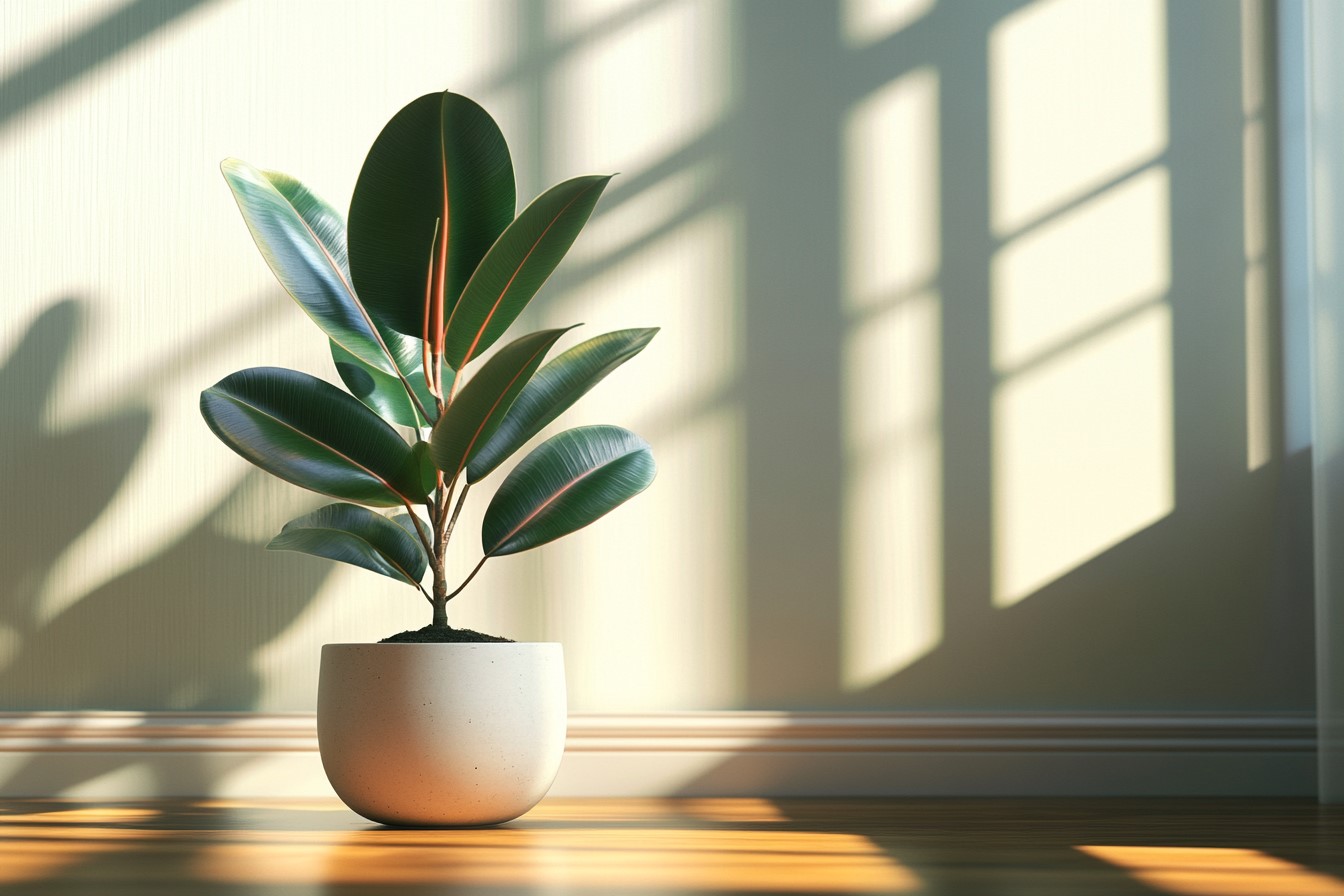
The rubber plant thrives effortlessly with its glossy, resilient leaves, even in low light. According to Vastu, plants to keep at home as per Vastu include the rubber plant, as keeping this plant indoors enhances fortune and success, particularly in the southeast corner of your living room. Placing it in a small decorative pot can make it a charming focal point while quietly helping you attract the success you have been striving for.
Jade Plant
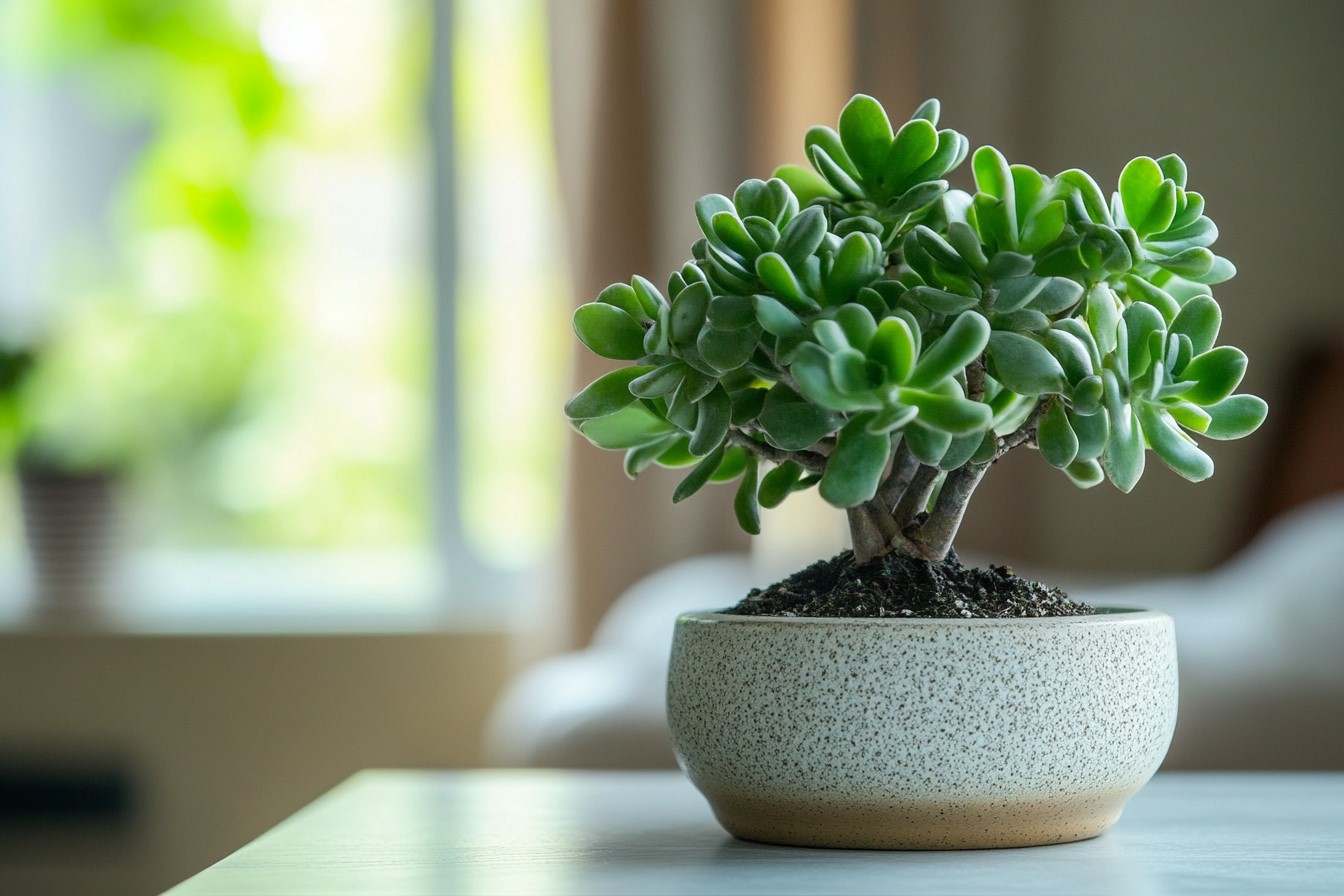
Jade is a popular lucky plant for home, and as per Vastu, it is celebrated for attracting good fortune and spreading positive energy throughout the house. It also makes a wonderful housewarming gift. The ideal placement for lucky plants for home Vastu, such as jade plants, is in the southeast, especially near entrances, as this maximises their beneficial effects. However, it is best to avoid placing it in the bedroom.
Jasmine Plant
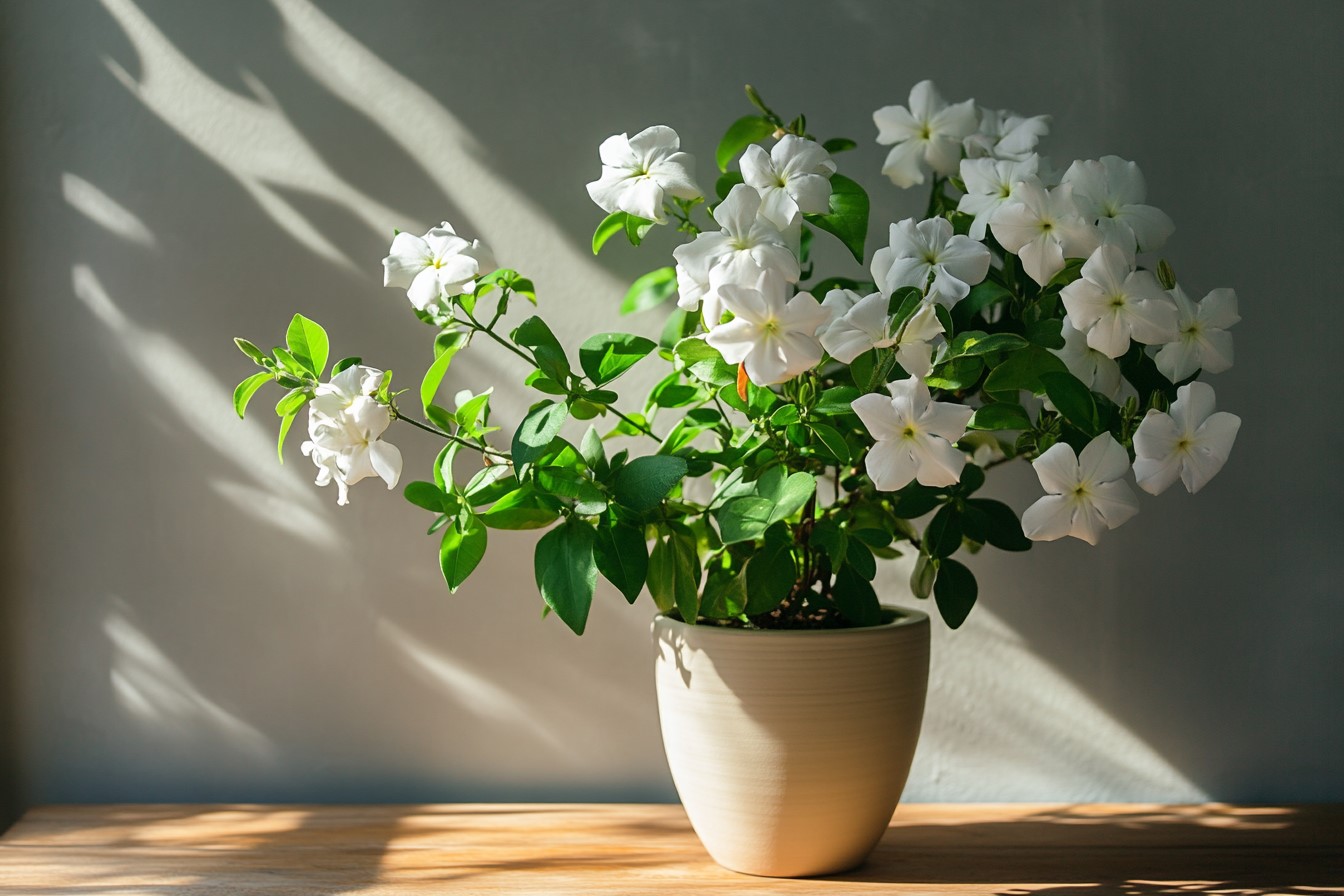
Jasmine plants are well-known for easing anxiety. Their pleasant fragrance brings a sense of calm and serenity, particularly in the summer months. Ideally placed indoors near a south-facing window, jasmine attracts positive energy and fosters love and prosperity in relationships.
Aloe Vera Plant
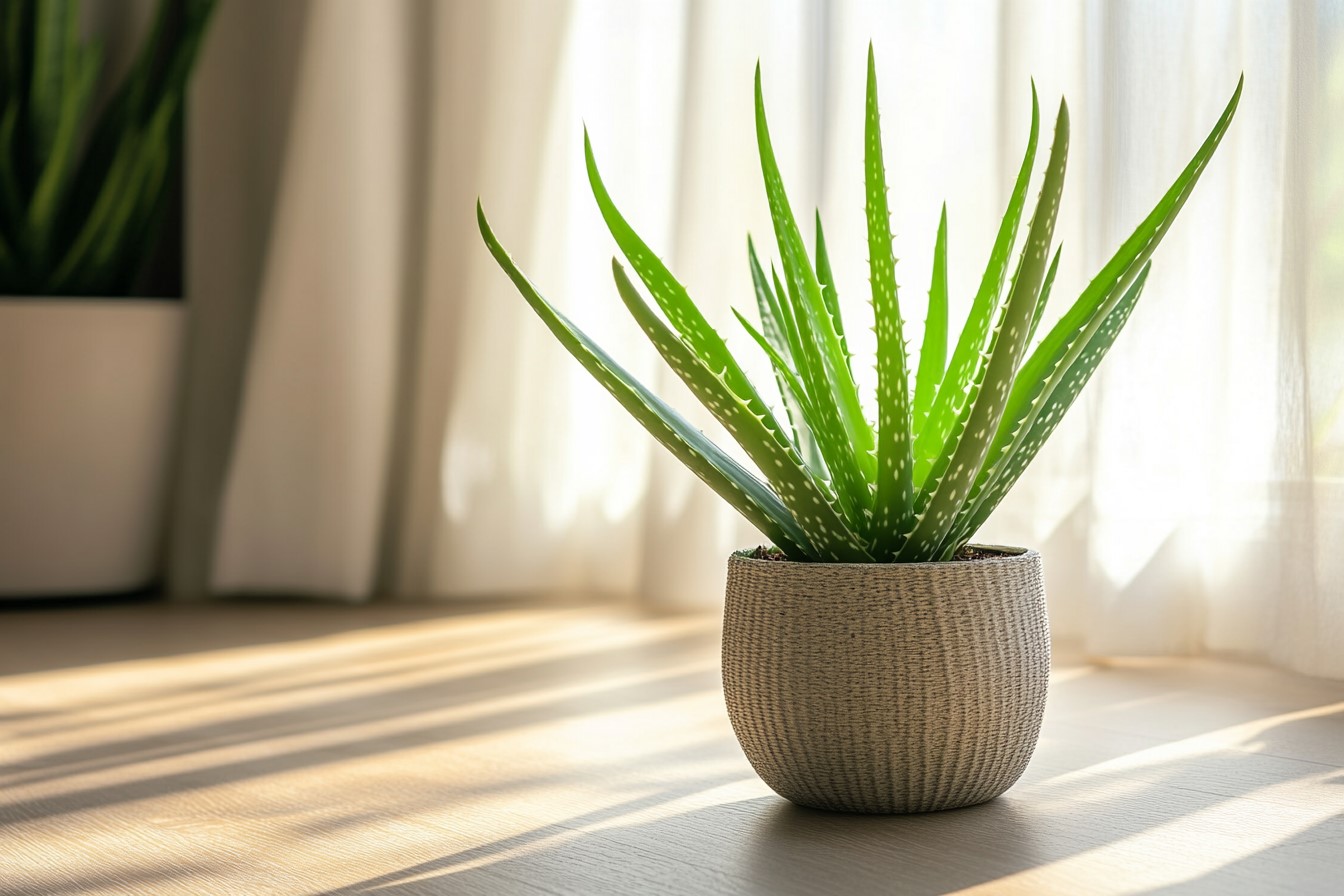
Aloe vera is a popular choice in the cosmetic industry for its several benefits for hair, skin, and the immune system. As a succulent, it stores water in its thick green leaves, making it resilient to indoor and outdoor environments, even in extreme temperatures. According to Vastu, aloe vera is considered one of the best indoor plants as per Vastu and should be placed in the east or south-facing areas of the home, avoiding the northeast. Its raw sap can treat various conditions like sunburns and ulcers. Planting it in terracotta pots adds a natural, earthy aesthetic to your space, making it one of the ideal Vastu plants for home decor.
Peony
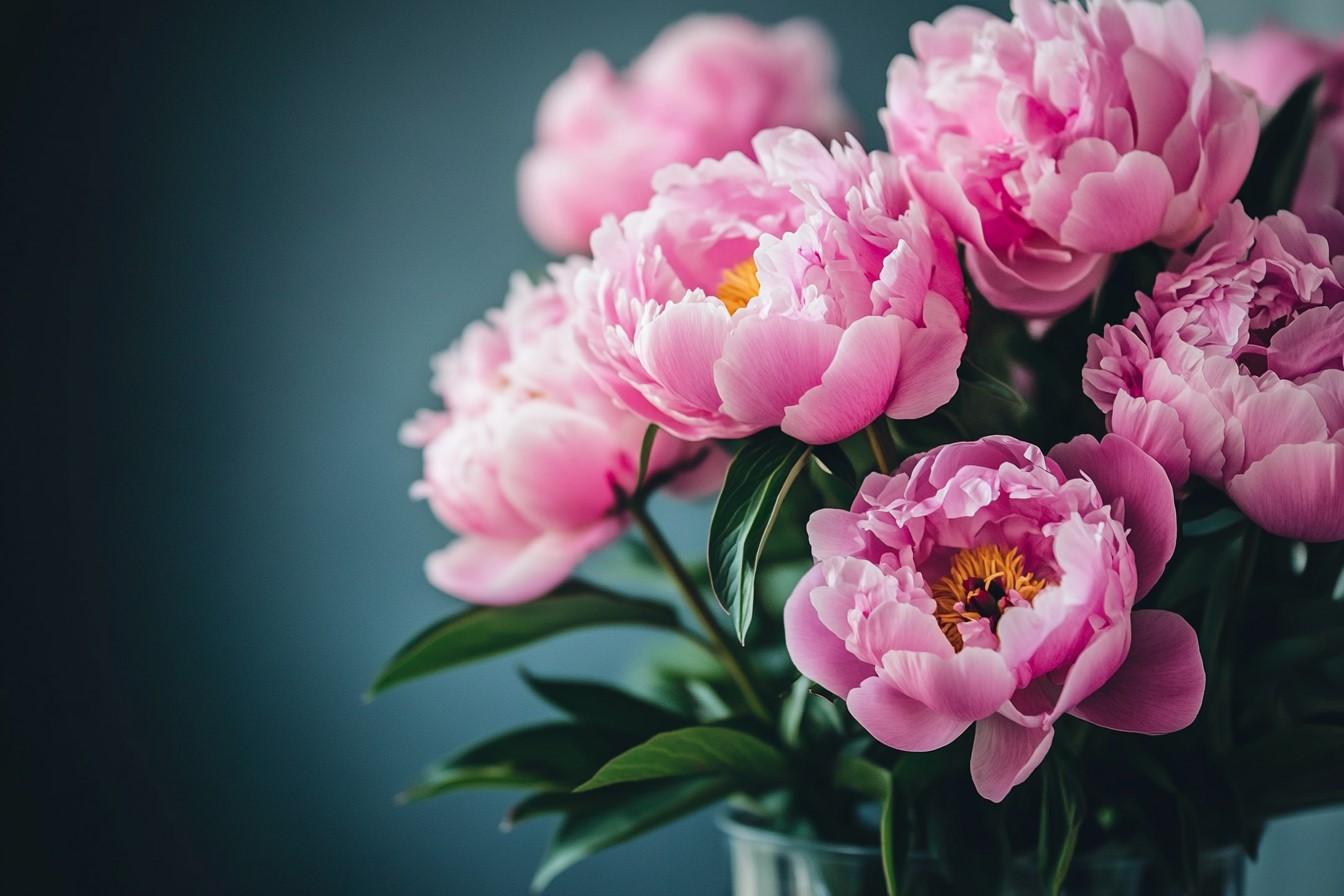
While requiring extra care initially, the peony plant rewards your home with vibrant colour and freshness once it blooms. This plant is revered in Vastu for nurturing positive relationships and encouraging loving connections. It brings an air of optimism and positivity into the home, symbolising femininity, harmony, nobility, and true love. Known for its ability to heal broken bonds, it is best placed in the southwest corner of the house to enhance relationship energy.
Marigold
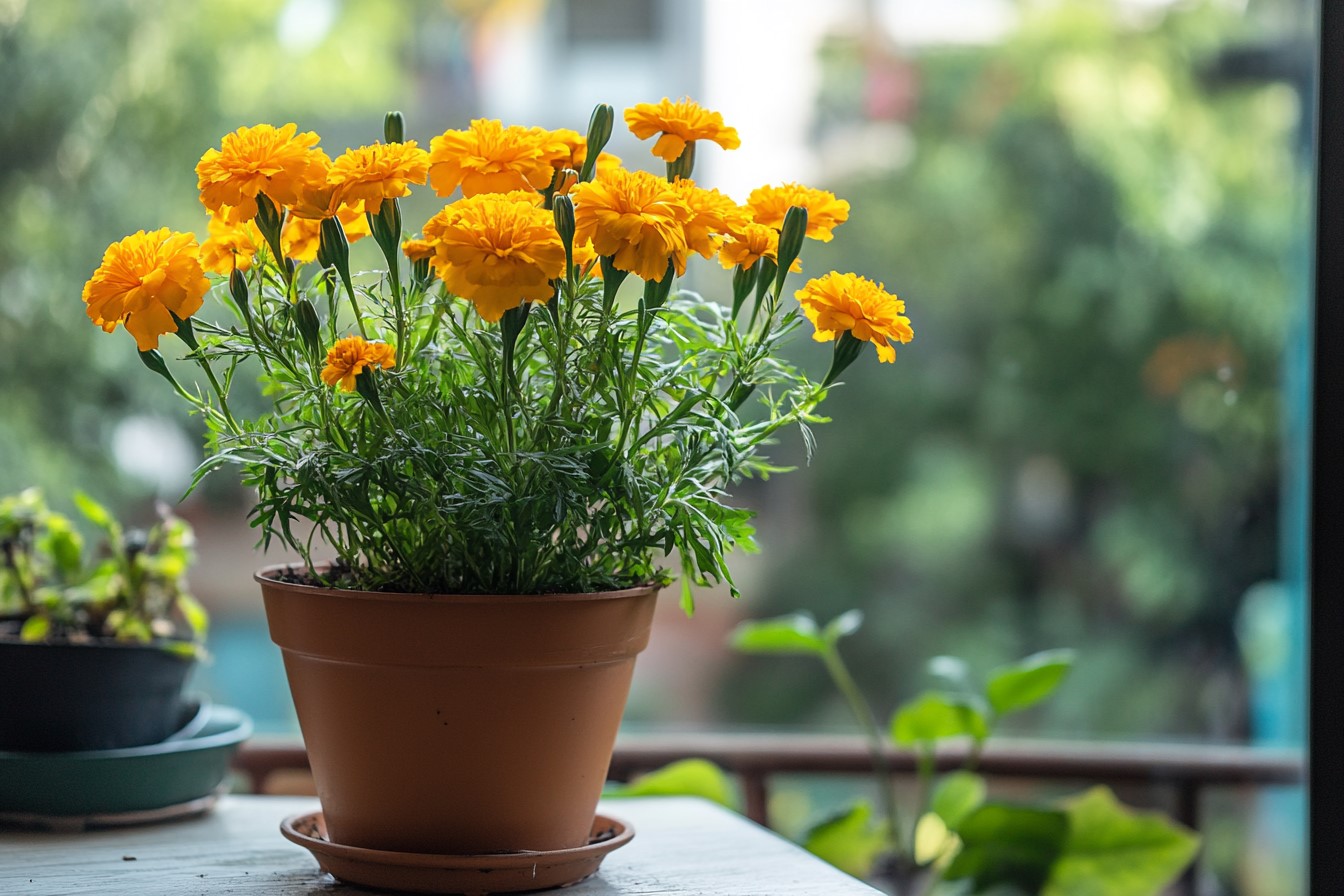
The marigold, also known as Calendula, is a plant that bursts into some of the brightest, most vibrant flowers in nature. With its lush foliage and striking deep-yellow blooms, it is highly regarded in Vastu plants for home for its positive impact on the home's energy. The cheerful flowers are believed to enhance the atmosphere, uplifting the mood and energy levels of the residents. To fully benefit from its presence, it is recommended to place the marigold in the north or east directions of the home. This Vastu plant will infuse your space with a joyful and uplifting vibe.
Plants to Avoid for Your Home As Per Vastu
It is important to know the best Vastu plants for your home and which plants should be kept outside to avoid inviting negative energy indoors. We are not saying you should not grow these plants at all; rather, we recommend cultivating them in your outdoor garden for the best results. Here is a list of plants to avoid placing inside your home:
- Cactus and Thorny Plants: Plants with sharp thorns, such as cacti, are believed to bring stress, conflict, and tension into the home. These should be avoided indoors, though they can be placed outside in a garden.
- Bonsai Plants: While they may look aesthetically pleasing, bonsai plants symbolise stunted growth and may hinder personal and financial progress when kept inside.
- Tamarind Plant: The tamarind tree is thought to attract negative energy and is considered inauspicious for indoor placement. It is often associated with ill fortune.
- Dead or Dying Plants: Keeping wilted or dying plants inside is considered unlucky in Vastu. Such plants are believed to bring negative energy and hinder the flow of positive vibrations.
Where to Put Your Plants As Per Vastu
According to Vastu, placing Vastu plants is as important as selecting which ones to nurture. Large and bushy plants should ideally be grown in the southwest part of the house, preferably in the garden or backyard, as this promotes stability and success.
However, certain plants according to Vastu Shastra, such as the Peepal and Banyan trees, are considered unsuitable for home interiors and are better suited for places of worship, like temples. Smaller plants, at most 3 feet, are recommended for the east or northeast areas.
Additionally, Vastu advises against planting trees near homes that attract creatures like worms, serpents, or owls, as these are believed to invite negative energies.
Conclusion
Incorporating indoor plants’ direction as per Vastu into your home is more than a trend or a simple decor choice; it is an intentional act of bringing nature’s balance into your personal space. Plants have an innate ability to connect us to the natural world, encouraging a sense of peace, prosperity, and harmony. By choosing the best indoor plants as per Vastu and placing them in the correct directions, you can invite positive energies, enhance your well-being, and create an atmosphere that nourishes both the mind and spirit.
Vastu teaches us that our surroundings influence our internal state, and with certain plants, we can channel growth, wealth, and happiness into our lives. Whether it is the good fortune brought by the lucky plants for home, as per Vastu, the healing qualities of tulsi, or the air-purifying powers of the snake plant, each plant brings its own unique contribution to our homes. At the same time, understanding which plants to avoid indoors ensures that your living space remains free of negative vibrations.
Are you wondering which plants are best for your home? Our Vastu experts are here to guide you with personalised tips and insights. Contact the experts at Interior Company today for more Vastu tips and to transform your home into a balanced and auspicious space!
*Images used are for representational purposes only. Unless explicitly mentioned, Interior Company does not hold any copyright to the images.*
Ready for a home transformation?
Let our designers assist you!
Recent Posts
Vastu emphasises the flow of energy within a space. Placing plants according to Vastu principles can attract positive energy, promote harmony, and enhance overall well-being in your home.
According to Vastu tips, plants like the money plant, lucky bamboo, and jade plant are believed to attract wealth, abundance, and prosperity when placed in the right direction.
Plants with sharp thorns, like cacti, bonsai trees, and milk-secreting plants, are best avoided indoors, as they are believed to create negative energy or hinder personal growth.
Related Category
- Balcony
- Bedroom
- Home Decor
- Living Room
- Outdoors
























